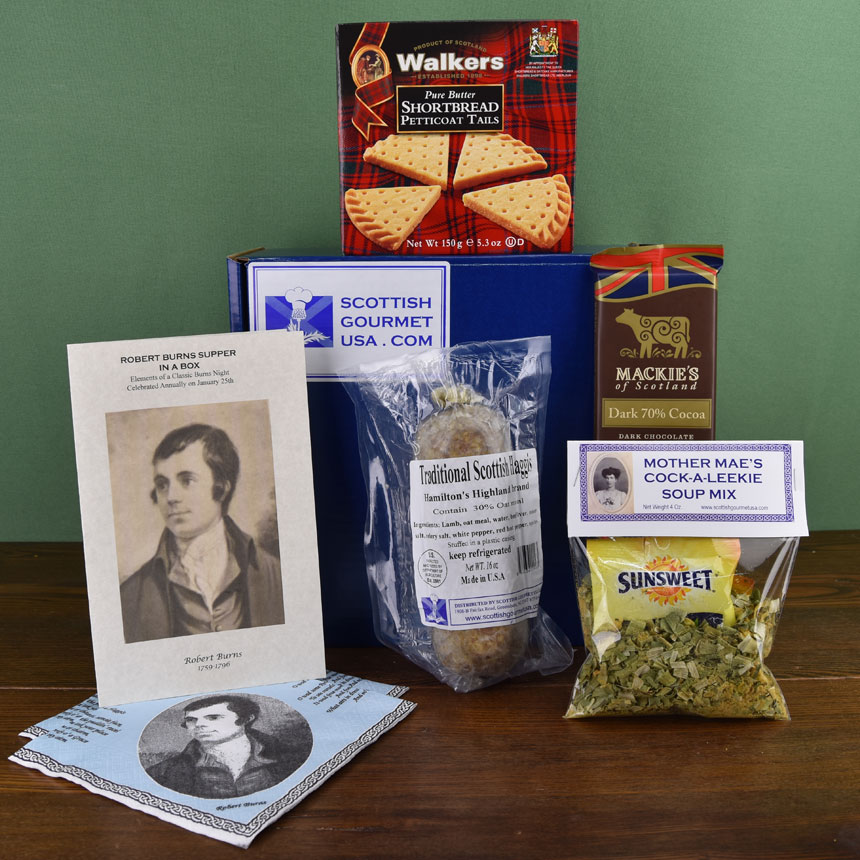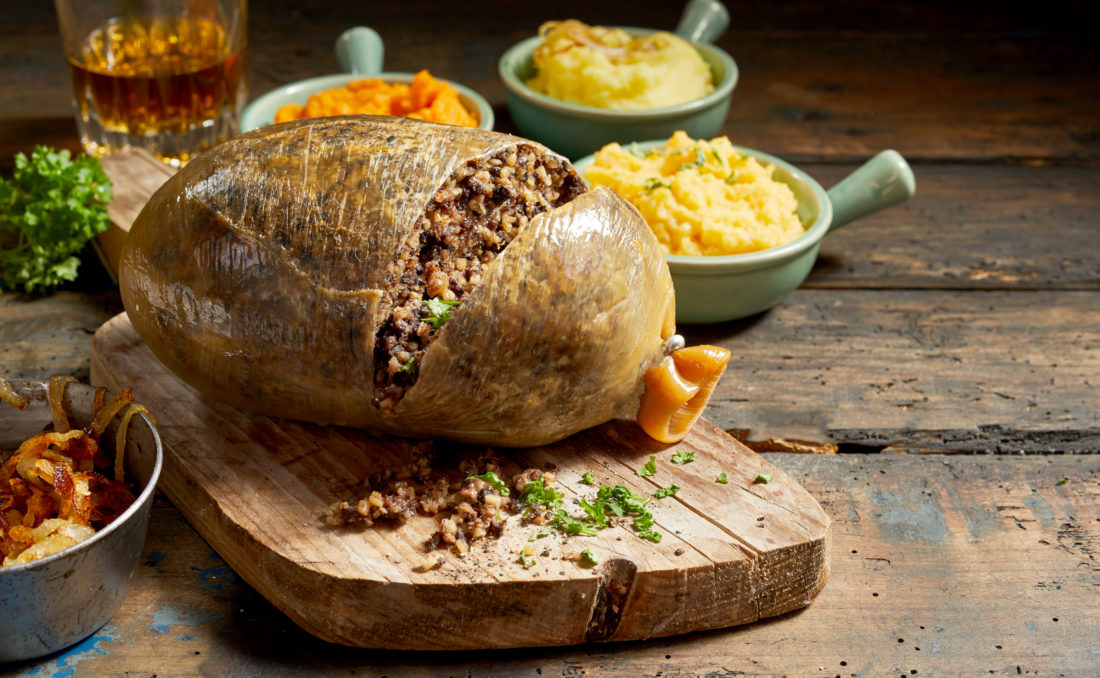On the evening of January 25 around Scotland, voices will ring out in triumphant recitation of the beloved poetry and songs of eighteenth-century Scottish poet Robert Burns. Platters of steaming haggis—Scotland’s national dish traditionally made from a sheep’s ‘pluck,’ or the heart, lungs, and liver, boiled together in the stomach—will be brought forth. A man will give an (often bawdy) address to the lassies, followed by an (often bawdy) reply from the lassies. The whisky will flow liberally. This is a Burns Supper, a night dedicated to celebrating the birthday of Scotland’s favorite poet, who wrote of common things in the dialect of the common man of his time (think, “Fair fa’ your honest, sonsie face/Great chieftain o the puddin’-race…”). And on the evening of January 25 around the state of North Carolina, all of these things will happen, too.
The Scottish have a long history in the Tar Heel State. During the eighteenth century, and after the failed Jacobite rebellion of 1745 in the Highlands in particular, Scots arrived by the thousands, tempted by the promise of land grants and fleeing English rule, the unraveling of the clans, and worsening poverty. By 1763, the total Scottish population in the colony numbered 20,000, many of them Highlanders who settled around Cross Creek (modern-day Cumberland County). At the end of the eighteenth century, that settlement of Highlanders was the largest on the continent, and they maintained many of their traditions; to this day, Grandfather Mountain boasts one of the largest Highland Games in the country.
The descendants of those early settlers still harbor an appetite for Scotland’s natural larder. In 2005, Anne Robinson, with the help of her husband Andrew Hamilton (a Scottish chef born in Ayrshire), started Scottish Gourmet USA, now based in Greensboro, to sell high-end Scottish products like organic porridge oats, smoked salmon, heather honey, and pheasant. “But people quickly started calling and asking, ‘Why don’t you make a good haggis?’” Robinson says. “So, we did. Haggis is now our best-selling product, and Burns Night is like Christmas to us.”
Haggis has humble beginnings. It started as the food of the lower classes, since it was a way to use the highly perishable organs of a slaughtered animal while the rest of its meat could be sold or traded. But it was also hearty, and with oats, onion, and spices, it made for a crumbly, nutty, flavorful meal. In “Address to a Haggis,” performed at every Burns Supper, the poet extols its virtues. “The first impression that people have is that haggis is made from something lousy,” Robinson says. “But this is vitamin city—these are extremely healthy parts of the animal.”
Her husband had his own recipe for haggis, but since the USDA doesn’t allow lung products—a key ingredient for the texture—Hamilton worked with a French pâté chef to come up with a substitute, and a little bit of beef liver revealed itself as the secret. Their final product, which is a little different than the most traditional of Scottish versions, also includes ground lamb, onion, oats, a hint of cayenne, cloves, and a liberal helping of white pepper. “It’s crumbly and spicy, and if you love lamb, you’ve got to try it.”

In the weeks leading up to Burns Night, Scottish Gourmet does its biggest business of the year, shipping out haggis in seven various forms, including different sized logs, bites, and pies, and one upscale variety made with venison and whisky. “Back before we started making haggis, we’d throw our own elaborate Burns Suppers,” says Robinson, “including a smoked salmon course, cock-a-leekie soup, the haggis, another meat course, and dessert.”
Nowadays, the night of the twenty-fifth will find Robinson celebrating a much quieter version of the holiday, but she and her husband rest easy knowing that they’ve put haggis on tables across North Carolina and beyond. “We get stories from customers about how their Burns Supper has become a family tradition, or how they invited neighbors who had never tried haggis before, and that is a lovely thing.”








